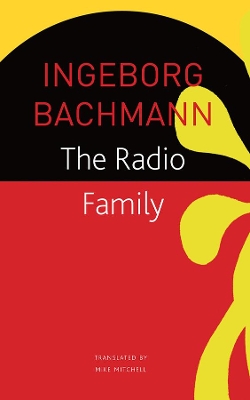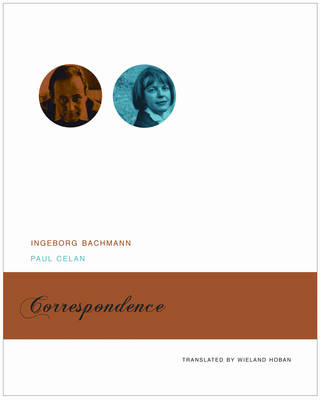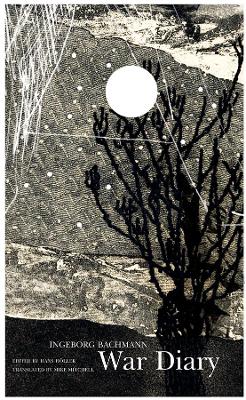The German List - (Seagull Titles CHUP)
3 total works
Ingeborg Bachmann (1926-1973) is recognized as one of post-war German literature’s most important novelists, poets, and playwrights. Influenced by Hans Weigel and the legendary literary circle Gruppe 47, Bachmann gained international renown for her poems, short stories, and novels, and won numerous awards for her work. Sadly, her life ended abruptly in October of 1973 when a lit cigarette burned down her apartment causing Bachmann to suffer severe burns that would eventually prove fatal. The author was only forty-seven, and her tragic death left what could have been a long and lustrous writing career regretfully stunted.
Nearly twenty years after her death, during an estate sale in Vienna, fifteen episodes of the popular Viennese radio drama The Radio Family were discovered. Remarkably, they happened to be written by Ingeborg Bachmann herself, who had been a writer on the show just after she graduated university. The Radio Family was a popular radio soap opera broadcast in the American sector of occupied Vienna in the 1950s. The program focused on a middle-class Viennese family and their everyday life. Topics ranged from birthday parties and holiday plans to profiteering and currency fraud in the commercial sector, and Austrians’ involvement in the Nazi past. All fifteen scripts have now been compiled and masterfully translated, revealing an early and significant piece of Bachmann’s body of work, while simultaneously offering a rare glimpse into Vienna’s quotidian history.
Nearly twenty years after her death, during an estate sale in Vienna, fifteen episodes of the popular Viennese radio drama The Radio Family were discovered. Remarkably, they happened to be written by Ingeborg Bachmann herself, who had been a writer on the show just after she graduated university. The Radio Family was a popular radio soap opera broadcast in the American sector of occupied Vienna in the 1950s. The program focused on a middle-class Viennese family and their everyday life. Topics ranged from birthday parties and holiday plans to profiteering and currency fraud in the commercial sector, and Austrians’ involvement in the Nazi past. All fifteen scripts have now been compiled and masterfully translated, revealing an early and significant piece of Bachmann’s body of work, while simultaneously offering a rare glimpse into Vienna’s quotidian history.
Paul Celan (1920-70) is one of the best-known German poets of the Holocaust; many of his poems, admired for their spare, precise diction, deal directly with its stark themes. Austrian writer Ingeborg Bachmann (1926-73) is recognized as one of post - World War II German literature's most important novelists, poets, and playwrights. It seems only appropriate that these two contemporaries and masters of language were at one time lovers, and that they shared a lengthy, artful, and passionate correspondence. Collected here for the first time in English are their letters written between 1948 and 1961. Their correspondence forms a moving testimony of the discourse of love in the age after Auschwitz, with all the symptomatic disturbances and crises caused by their conflicting backgrounds and their hard-to-reconcile designs for living - as a woman, as a man, as writers. In addition to the almost two hundred letters, the volume includes an important exchange between Bachmann and Gisele Celan-Lestrange, who married Celan in 1951, as well as letters between Paul Celan and Swiss writer Max Frisch.
Austrian writer Ingeborg Bachmann (1926-73) is recognized as one of the most important novelists, poets, and playwrights of postwar German literature. As befitting such a versatile writer, her "War Diary" is not a day-by-day journal but a series of sketches, depicting the last months of World War II and the first year of the subsequent British occupation of Austria. These articulate and powerful entries - all the more remarkable given Bachmann's young age at the time - reveal the eighteen-year-old's hatred of both war and Nazism. The British occupation leads to her incredible meeting with a British officer, Jack Hamesh, a Jew who had originally fled Vienna for England in 1938. He is astonished to find in Austria a young girl who has read banned authors such as Mann, Schnitzler, and Hofmannsthal. Their relationship is captured here in the emotional and moving letters Hamesh writes to Bachmann when he travels to Israel in 1946. In his correspondence, he describes how in his new home of Israel, he still suffers from the rootlessness affecting so many of those who lost parents, family, friends, and homes in the war.
"War Diary" provides unusual insight into the formation of Bachmann as a writer and will be cherished by the many fans of her work. But it is also a poignant glimpse into life in Austria in the immediate aftermath of the war.
"War Diary" provides unusual insight into the formation of Bachmann as a writer and will be cherished by the many fans of her work. But it is also a poignant glimpse into life in Austria in the immediate aftermath of the war.


